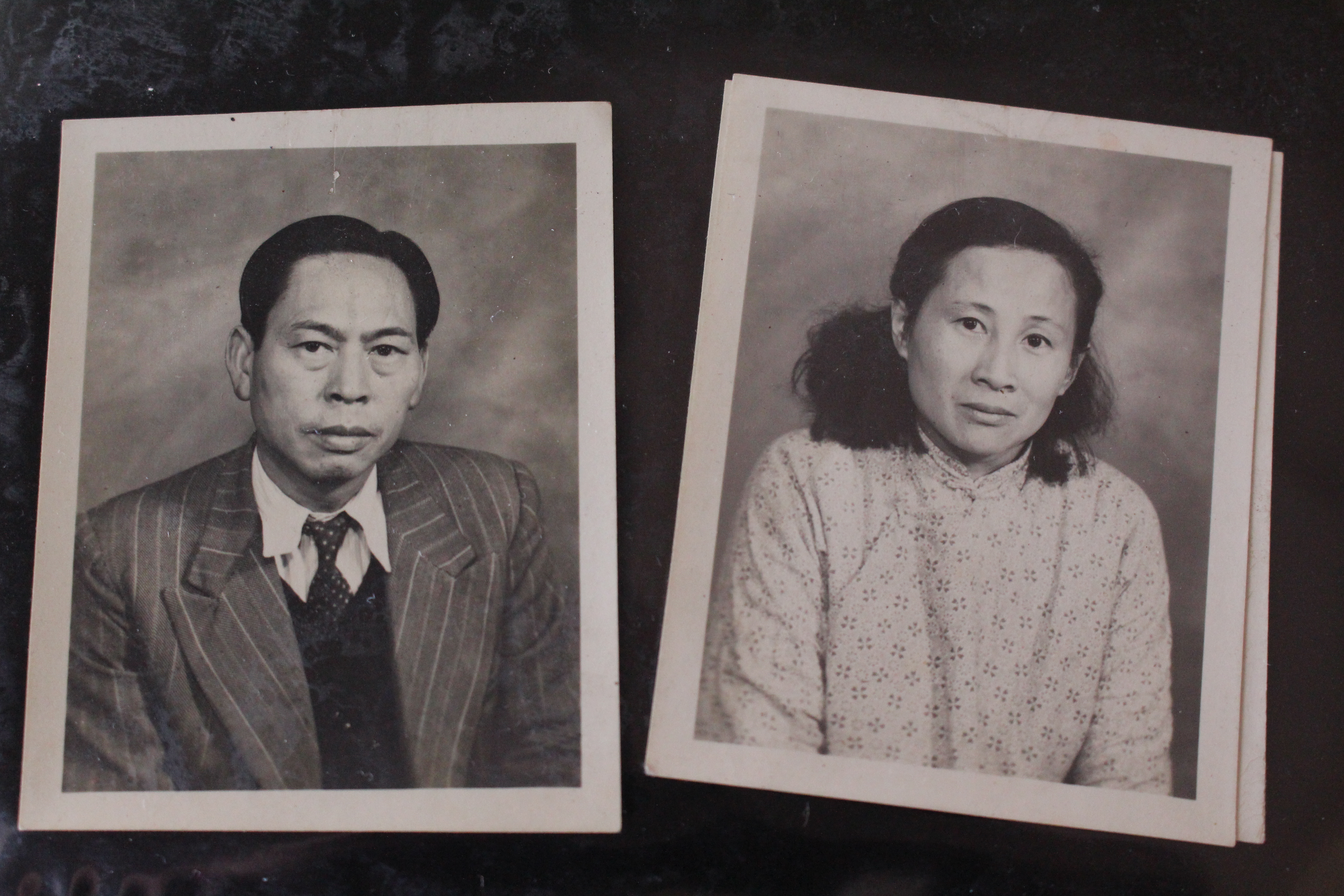I spent my last semester of college finishing up my thesis on children who grew up in family-owned Chinese restaurants. In the process of writing, it was impossible to not talk about the challenge of being an anthropologist who is both an insider and outsider to the community that she is studying. But where I was always able to lay down my claim to my identity as a restaurant kid, it’s not so easy convincing Hakka Indians (and myself) that I’m not a complete stranger.
Since my first time visiting family in India, I’ve always known that I would be seen as an outsider though. As I mentioned in “Almost There,” language has always been my personal weakness–and it’s a major factor that determines belongingness for many Hakka. I still believe that it’s possible to express sincerity across language barriers, but my time in Vienna now has made it clear that it sure makes it a lot harder when I don’t completely grasp the language.
Language is of course not the only thing that makes me an outsider. In the Hakka Indian community, the most common form of ID that people ask for is your last name, followed by a list of people to whom you are related. This is a bit beyond my control, but the surname “Cheng” (郑) is pretty uncommon. In addition to an uncommon surname, my parents didn’t grow up in Calcutta’s Tangra. My dad lived there for a few years after his family was released from Deoli Internment Camp. My mom was born in Calcutta but grew up on the move toward Pakistan. I don’t think my parents would ever consider Tangra their own, and I wouldn’t be surprised to think that they also felt like outsiders next to Chinese-Indians. My parents disappeared from the radar for 30+ years after settling down in the depths of North Carolina.
When people ask me who my parents are, most people do not recognize who my father is because he chose to leave the Hakka Indian community. Some recognize my uncles, who are quite unforgettable and eccentric characters. In some ways, it’s a small consolation and relief that my parents aren’t as connected to the Hakka Indian community in moments when I desperately wish I could become a part of the community. And then there are moments that make me so starkly aware that I am inextricably becoming a character in new stories. While that may seem exciting and wonderful, it comes with its consequences as well.
Gossip as Storytelling
Over the past few weeks, I’ve tried to understand Hakka women’s empowerment through speaking with them about generational attitudes toward arranged marriage. A common observation that many young people have made is that Hakka women tend to garner a lot of power after they hit a certain age (usually by the time they are grandmothers). I’ve asked myself what exactly it is that women do to keep the community in check.
Some might call it idle gossip. But from an anthropological perspective, I’d give it more credit than that. Gossip is a form of storytelling among older generations here, and in particular, for women. How does gossip-telling work as a power mechanism? We all use the telephone game analogy, but it’s more intentional than that when we look closely at how it interacts with its agents.
First, I’ve considered community context. While they don’t make a point of seeing each other every day Hakka-Indian communities tend to cluster when they settle down. That close proximity makes it difficult to really avoid running into family members and relatives’ friends, sometimes at one’s most vulnerable moments. For the most part, Hakka Indian people here don’t interact a lot with other Hakka communities. Other than churches, there aren’t any organizations or community figures that facilitate gatherings among Hakka. The Hakka Indian community occasionally may organize a dinner or picnic together, but families still remain fragmented or keep to their own inner circles.
But this is where I’ve questioned: Who uses gossip agentively? I ask others what exactly older people enjoy doing in their free time. In Austria, the elderly can retire at age 65. Living in Vienna makes it possible for families to stay in touch with their elders. In particular, older Hakka women maintain a lot of power in the family. I’ve asked how this happens. Some women have responded that a woman’s slow rise to becoming a matriarch starts when she becomes a mother-in-law, a process that deserves its own attention in another post. When women gossip though, they are storytelling and reporting in the community. Those who are good at gossip know which details are bendable, how much retelling they can do, and the right occasion to bring up the right stories.
The intentionality behind spreading gossip makes it clear that it’s a form of functional storytelling. I’ve considered to whom elders direct their gossip and storytelling: usually, young people. This includes anyone younger than the gossip-teller, ranging from middle-aged individuals to teenagers to children. One might think that social outliers are the only ones who garner attention. But every young person gets some form of attention, whether it’s hearing a retelling of who was caught hand-holding or a harsh critique of an unruly five-year-old’s last tantrum. Gossip acts as a local panopticon, by which community members monitor their own actions. Sure, young people still have their share of fun and mistakes–but most desire to keep these secrets hidden. Even those who believe that they can escape their communities by challenging traditions find that they are still characters in their elders’ stories.
Governesses and the Governed
In the absence of formal organizations, gossip acts as a mechanism for governance. In particular, it seems that women are more harnessed by gossip than men are. I’ve heard quite a few stories about Hakka Indian men from around many countries, but these stories are usually shrugged off with “boys will be boys.” Hakka Indian girls, on the other hand, have to grow up quickly.
Marriage marked the beginning of decades of training between a mother-in-law and her daughter-in-law. Mother-in-laws were, and still are, often the ones to teach women how to cook, clean and keep their households–meaning married women find themselves under a continually watchful eye.
The scrutiny that women face starts long before the wedding though. My mother’s generation constantly worried that a spoiled reputation would mean ruined chances at finding a husband. Unsurprisingly, women found themselves more vulnerable and governed by the gossip that they heard from all corners of the Hakka Indian community. And for women who did get marriage offers, it sometimes felt impossible to refuse for fear of offending another family and causing a feud. A few women I’ve met so far, some younger than my parents, married when they were just teenagers. In other cases, it felt like ‘yes’ was the only answer. One woman explained, “I was so scared. I didn’t know what else to say. But my father told me that no matter what, every woman has to get married someday.”
New Characters
For better or worse, this way of storytelling is what keeps the Hakka Indian community alive. As much as Hakka Indians fear becoming pieces of gossip, I think it’s safe to say that being talked about is a sign of belonging to the community. And for older women, it’s their way making their voices heard as they slowly alter and pass on what was seen, observed or experienced.
Seeing how close Hakka Indian families in Vienna remain to each other has made me more aware of how isolated I grew up from them. I’m not so naive to think that this is a ‘coming home’ story for me though. At the same time, I know I can’t hide behind the anthropologist get-up anymore. I’m aware of the suspicions that have arisen around my intentions of coming to Vienna, hanging out with Hakka Indian families, the questions ask, and why I can’t speak Hakka very well.
Stories and questions have gotten back to me about women’s thoughts on my looks, whether or not I’m looking for a marriage partner (I’m not), or my mannerisms. I don’t know that I’m considered a Hakka Indian, or if I ever will be. But I do know that I’ve somehow become a new and odd character in a few more lives.

